C’mon down for this week’s TV roundup!
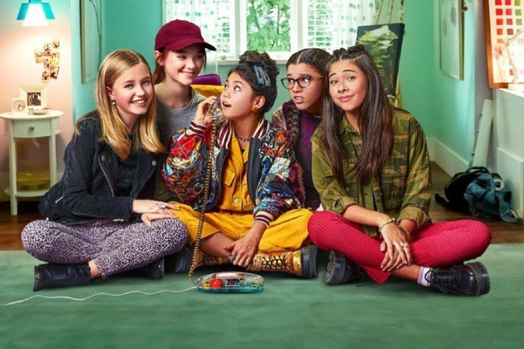
THE BABY-SITTERS CLUB (Netflix)
Netflix’s adaptation of The Baby-Sitters Club is a thoughtful, well-paced introduction (induction, one could say) into the world of the BSC. Beginning with “Kristy’s Great Idea,” the viewer journeys through the club’s inception and follows them through some pivotal moments for the four core members, Kristy, Mary Anne, Claudia, and Stacy, including the recruitment of a fifth core member, Dawn, and two junior officers, Mallory and Jessie. Each episode is narrated by a member and told from their perspective, similar to the style of the books.
Because of how much this series means to me I was concerned that a modern Netflix revival might feel uncomfortable. I was worried that it would suffer the same fate that many other reboots have and try to take complex issues and present them in a hyper-simplified and palatable way. I’m not 100% sure why television makes this misstep, but I have a theory that it is the result of not believing in or trusting the intelligence of its audience. People assume that children or teens aren’t interested in or can’t handle having intelligent conversations about gender, sexuality, class, race, etc. so writers go the route of least resistance and try to avoid taking stances or keep the show extremely light-hearted, usually through cheesy humor and a lot of background tracks.
Ann M. Martin’s The Baby-Sitters Club is a series that will likely always endure the test of time because of its genuine interest in the wellbeing of its characters. The Baby-Sitters Club, fondly referred to as The BSC, originated as a series of novels written with youth in mind but have transcended their intended audience. Some of my earliest memories of the joy of reading are when I would check out BSC books from my elementary school library and sneak and read them under the desk in class. The BSC were a group of young girls that were just living normal lives and the things that they went through and that the books detailed were like the things that I was expecting to have to endure at some point in my life: bullies, crushes, parents, annoying siblings, and sometimes more serious things like health issues, family deaths, and racism.
For example, in Episode 5, Dawn offers to sit for the rowdy Barrett family as a test to prove that she is a good enough babysitter to earn membership. Kristy knows this particular family, comprised of a newly-divorced single mother and her three children, is a nightmare and thinks Dawn won’t survive but Dawn takes the job anyway. Dawn goes above and beyond with this family by cleaning their home, putting the kids to bed, and staying way past the time that the children’s mother agrees to have returned by. She is asked back repeatedly and has to learn the difficult lesson of setting boundaries, but before she can, she loses track of one of the kids and is forced to call the police to report them as missing. When the child’s father arrives with the missing child everyone is relieved but Kristy, who has shown up to support Dawn, begins to spiral. Seeing supportive fathers is difficult for her, as her own father is famously absent from her life. Kristy hightails it to the Barett family’s kitchen, where she begins to smash potato chip bags in a fit of rage. Dawn, despite having a contentious relationship with Kristy, offers her some support, reminding her that even though her dad might not be present in her life, she can get love from other sources. This is all happening alongside Mary Anne’s father being upset with Mary Anne for redecorating her room, which has looked the same since she was a toddler. Mary Anne’s room is a reminder of Richard’s late wife and he’s not ready to let that go or let Mary Anne have more control of her life despite being incredibly proud of her, something he expressed in the previous episode when Mary Anne spoke up on behalf of a child being misgendered.
I described the ethos of the BSC to a friend as “real-life SAILOR MOON,” and if you’re not familiar with SAILOR MOON, it’s a fantastic manga-turned-television show in which a group of teen girls with superpowers, motivated by their love for each other and what’s right, fight crime. The BSC doesn’t fight crime, but they do solve problems, and they do have a keen sense of right and wrong. They don’t have superpowers either, but they have got something the Sailor Moon crew doesn’t, which is a passion for childcare. But one of the best parts of either show is how much these girls genuinely care for each other and the world around them. They help each other deal with boy trouble, self-worth, and family drama. Dawn’s mom is newly divorced, Marianne is trying to figure out how to embrace feeling confident despite her insanely overprotective father, Kristy is dealing with her mom getting remarried, and Stacy is trying to understand how to be a normal kid despite her mom worrying about her diabetes. What this show makes abundantly clear to me is that no matter how well put together you think you are, you can (and probably will) ruin your kid’s life to some degree and it’s truly a matter of rolling the dice. Being a kid and being a parent are two different types of learning, but they are learning just the same. It’s clear that the kids as well as the adults on the show are not perfect. What you can hope for, as a parent or just a person, is that the people you care for have good people in their lives like the young girls of the BSC. [Amanda Ball]
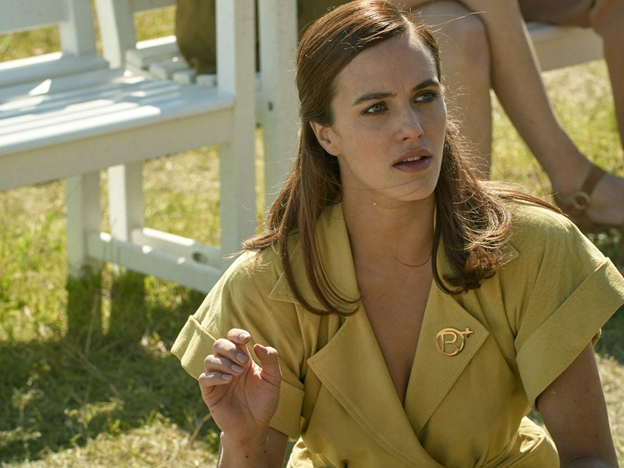
BRAVE NEW WORLD (Peacock)
It wouldn’t be the launch of a media conglomerate’s new streaming service/IP pile without a glossy television adaptation of an old book. For Peacock, that show is BRAVE NEW WORLD, adapted from the 1932 novel of the same name by Aldous Huxley, considered, much like 1984, to be one of the progenitors of the dystopian fiction genre and many other properties that have already received posh adaptations. Huxley’s novel is famous for its predictions about medicine, state control, and surveillance, while existing firstly as a parody of the utopian fiction produced by H.G. Wells around the time of the novel’s publication. It’s an image of an empire that truly spans the globe, globalized accordingly, and home to a docile caste system of mostly thoughtless drones who are kept complacent and happy through social conditioning and a drug called Soma. Peacock’s take on this, helmed by David Weiner (THE KILLING, HOMECOMING S2), is largely played straight, only making slight updates like the inclusion of an EAGLE EYE-esque AI named Indra to have the dystopia make more sense thematically for a modern audience. It’s what hasn’t changed from this decades-old story that’s more surprising.
The plot of BRAVE NEW WORLD follows the lives of Linina (Jessica Brown Findlay), Bernard (Harry Lloyd), and John (Alden Ehrenreich) as extreme circumstances bring their worlds clashing together. Linina and Bernard are members of the Social Body of New London; two members of the civilization’s upper “Levels” (here designated by the Greek alphabet from Alpha to Epsilon) questioning their position in society. The world of New London is lush, but somehow muted, a sort of IKEA showroom as city planning, the world from HER without the architecture of Shanghai, a Uniqlo catalogue blown up into a whole lifestyle. It’s striking in its cohesiveness and scale, outside of the series’ special effects the most obvious thing that screams “EXPENSIVE” about this new show. John is a “Savage” from the Savagelands, a reservation/amusement park for those who chose not to join the World State, forced to re-enact old world customs like monogamy and greed to reinforce the conditioning of members of the Social Body. That Huxley, writing in the ‘30s, clumsily deployed “Savage” as a critique of current western imperial policy is not surprising. That television writers working in the 2010s would do so and go even further by largely using “race and gender-blind casting” to append the real experience of indigenous people around the world onto white people is unforgivable. It happens early in the show and besides the continued use of the word “Savage” it’s dropped quickly, but that early failure illuminates the show’s major problem: a complete unwillingness to complicate or expand upon its source text in any way other than to set up dangling plot threads for future seasons. Here BRAVE NEW WORLD is depressingly just like everyone else, at first appearing like a throwback to the time pre-Peak TV when any popular science fiction novel could get a respectable US-British co-production to air on the SyFy Channel, but ultimately revealing itself to be in the WESTWORLD school of LOST imitation.
It’s a shame the show has such a distaste for adventure or experimentation. With recent adaptations like HBO’s WATCHMEN offering flawed but compelling additions to a highly regarded text, a seminal work like BRAVE NEW WORLD feels ripe for a more meaningful injection of our modern crises. Especially with Dave Lee’s staggering production design (Lee’s also responsible for WATCHMEN’s distinct alternate history look) and performances from Findlay, Llloyd, and Ehrenreich that each offer nuanced and charmingly low-key elevations of characters saddled with a middling love triangle, and for Ehrenreich, paper-thin backstory. But it’s not enough. BRAVE NEW WORLD, much like the dystopian society it illustrates, is constructed from beautiful, but predominantly cheap thrills. A show that’s a faithful recreation of a radical text already assimilated into our modern culture. It needed more and didn’t get it. Another streaming Soma in search of a revolution. [Ian Campbell]
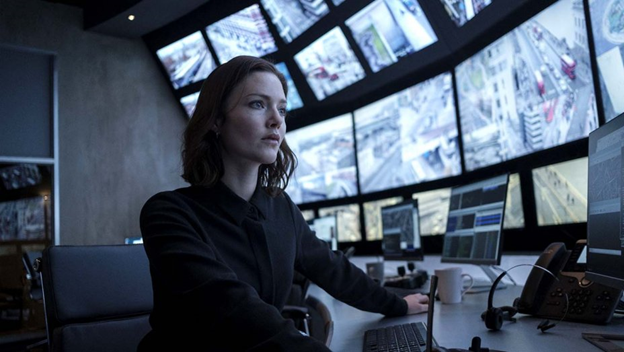
THE CAPTURE (Peacock)
It can be hard to view any new police procedural with a sympathetic eye given everything that’s happened in the last few months. Cop shows have always valorized law enforcement, even when they’ve complicated their protagonists and their methods. They accept certain things as fact: that incarceration is a solution, that force will always be necessary to a certain extent, and that if the “bad guy” is caught in the end, then any methods taken to put them away can be excused. THE CAPTURE was created well before our current moment and its placement as a launch “Peacock Original,” while ill-conceived given the brutal and invasive tactics of the law enforcement that have been made ever more clear in 2020, does make a certain amount of sense. Cop shows remain popular and this particular show has a novel take on modern policing. Beyond this no excuses can be made for THE CAPTURE and none should.
THE CAPTURE raises the spectre of the surveillance state, focusing on the framing of one Shaun Emery (Callum Turner), a recently acquitted soldier who’s viewed assaulting and kidnapping his barrister on CCTV hours after being released from prison. An attack he has no memory of, despite the video footage of. Investigating his case is DI Rachel Carey (Holliday Grainger), a young, emotionally distant workaholic (if this character type sounds familiar it’s because it’s long ago been defined as a trope) who’s trying to prove herself in the Violent Crimes division so she can assume a leadership position in London’s counter-terrorism department. Intrigue immediately shows its mysterious head when the video connecting Emery to the case is redacted by Security Office higher-ups (having some understanding of British law enforcement is not necessary but definitely makes some of the terminology easier to grok). Here the show makes its first zag, with the kidnapping case being impeded internally, also introducing a mysterious third-party organization led by American Ron Perlman that seems similarly interested in Shaun Avery and the whereabouts of his missing barrister. Things only get more complicated from there as DI Carey is pit against her own organization and Emery attempts to prove his innocence, pursued by multiple parties. Throughout, THE CAPTURE highlights the police’s reliance on all forms of video as evidence and as the show’s mystery progresses, how modern technology proves how fallible that form of evidence is. Video, it seems, is just as easily manipulated as an eyewitness account, perhaps even more dangerous because of how widespread all forms of surveillance are in modern society.
This is THE CAPTURE’s twist on a traditional cop show, the actual acknowledgement of video surveillance’s use and all the ways the threat of being recorded are used to police people before, after, and during a crime. It does cut a unique figure, often feeling like science fiction because of how infrequently the actual application of technology is remarked upon by shows like LAW & ORDER or Netflix’s THE FALL, but beyond that feature, there isn’t much that elevates THE CAPTURE. A theatrical villain turn from Ron Perlman does not a hit make and a show that doesn’t seem willing to reckon with the violent overreach of the police doesn’t demand anyone’s attention. THE CAPTURE has some compelling twists, but for an audience that rightfully doesn’t have the patience for more copaganda, it doesn’t make much of a splash. [Ian Campbell]
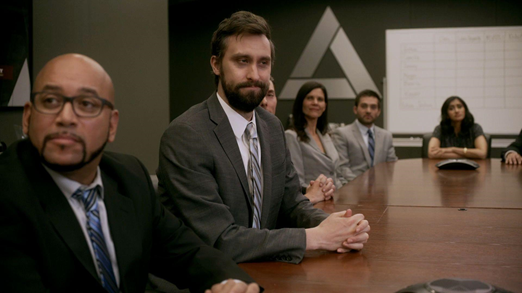
CORPORATE S3 (Comedy Central)
Comedy Central’s sleeper hit CORPORATE wants its final season to go out with a bang, like a shotgun stuck in a worker drone’s mouth. It’s been about four months since the pandemic caused everyone’s relationship with just about everything, including TV, to be fundamentally changed. What better time for a slicing meta commentary on media consumption in the modern era? The season premiere “Pickles 4 Breakfast” skewers both a bygone era of unifying prestige streaming series as well as the dark future of computer-generated content.
Creators/lead duo Matt Ingebretson and Jake Weisman take on one issue apiece. While Jake explores the robotic origins of new children’s show phenomenon PICKLES 4 BREAKFAST, Matt helps recreate a prestige series with a lackluster finale that vagueposts about GAME OF THRONES’ situation. They remake the finale using feedback from online fans, the toxicity of which causes Baron (Vaughn) to bleed from his eyes. As executive lackey John (Adam Lustick) puts it, “the fans vomit, we eat the vomit, then we simply vomit the vomit back into the fan’s mouths.” If that doesn’t summarize our relationship with TV in 2020… [Dan Blomquist]



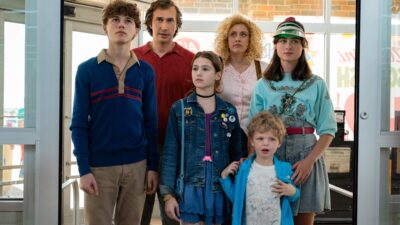
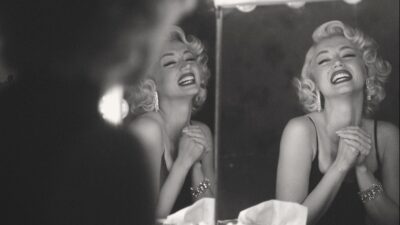

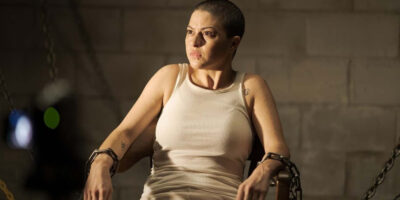

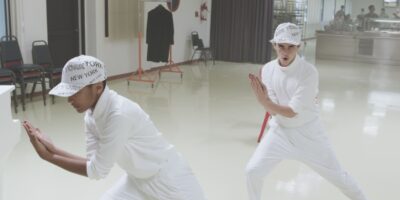

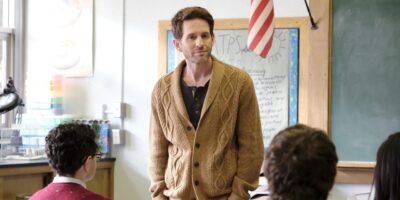
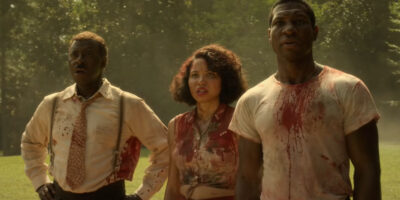
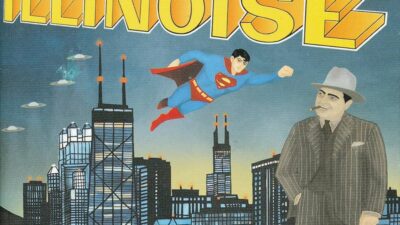
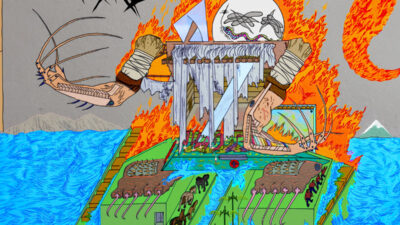


Comments